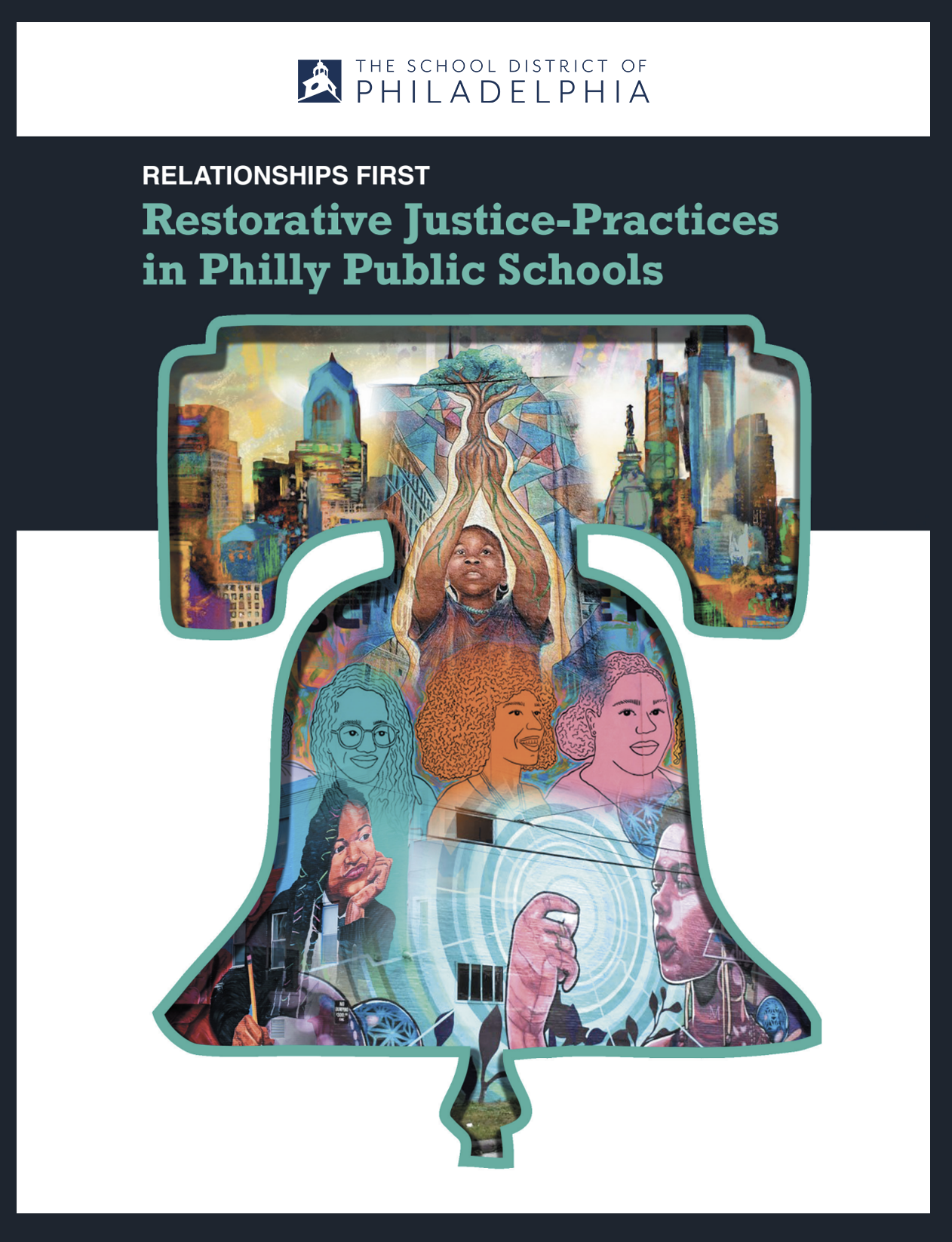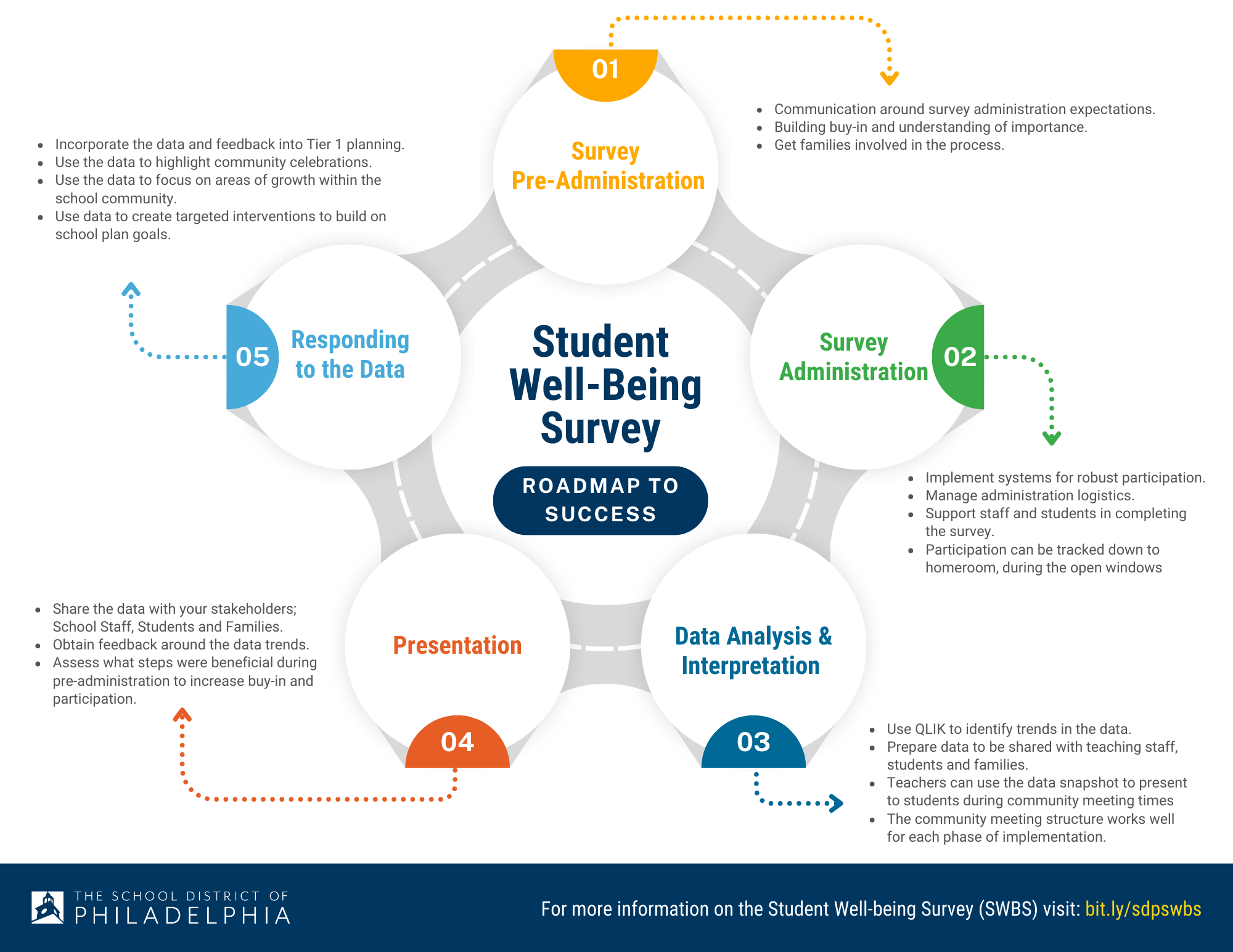Our team partners with schools to foster safe, supportive, and inclusive learning environments where every student feels a sense of belonging. We provide ongoing training, coaching, and resources that strengthen relationships and promote a culture of care, equity, and restoration.
We support schools across the District through a wide range of programs and practices, including:
- Social-Emotional Learning (SEL) tools and strategies for all schools
- Planning and best practices to support positive school climate
- Culturally Responsive Positive Behavioral Interventions and Supports (CR-PBIS)
- Relationships First (RF) programming
- Schoolwide Social and Emotional Learning initiatives
- School-based youth courts
- Prosocial recess for elementary and middle grades
- Mindfulness and stress-management resources
- Restorative Progressive Discipline training and the Guide to Student Discipline
- Guidance on implementing effective climate practices and procedures


Social & Emotional Learning (SEL)
Social & Emotional Learning (SEL)
At the School District of Philadelphia, we believe that social and emotional learning (SEL) is essential for student well-being, academic achievement, and lifelong success. SEL helps students develop self-awareness, manage emotions, build positive relationships, and make responsible decisions.
We are committed to supporting the social and emotional development of all students and staff by providing access to a wide range of research-based tools, professional development, and classroom strategies that nurture strong school communities.
Contact
View SEL’s Team Contact Information
Our district uses the CASEL framework, which centers around five key SEL competencies:
What is SEL?
The School District of Philadelphia has adopted CASEL’s 5 social and emotional learning competencies.
CASEL defines social and emotional learning (SEL) as an integral part of education and human development. SEL is the process through which all young people and adults acquire and apply the knowledge, skills, and attitudes to develop healthy identities, manage emotions and achieve personal and collective goals, feel and show empathy for others, establish and maintain supportive relationships, and make responsible and caring decisions.
SEL advances educational equity and excellence through authentic school-family-community partnerships to establish learning environments and experiences that feature trusting and collaborative relationships, rigorous and meaningful curriculum and instruction, and ongoing evaluation. SEL can help address various forms of inequity and empower young people and adults to co-create thriving schools and contribute to safe, healthy, and just communities.
SEL in School (School Leaders & Staff)
We recognize the key importance that schools play in supporting young people’s social and emotional development that goes beyond teaching a set of skills to embedding SEL into every aspect of daily school life. A systemic, school-wide approach to SEL improves the school environment, which results in better social and academic outcomes for students.
School-wide SEL
School-wide Social and Emotional Learning (SW SEL) is one of three Tier I framework approaches that schools can opt into during the annual school planning process. This approach guides schools through a process to ensure that SEL is strategically and representatively embedded throughout the school community.
SELebration Days
SELebration Days are important opportunities to increase student attendance, community connections, and SEL Skill-building by providing hands-on, experiential activities designed to deepen relationships for students in school.
Classroom Strategies:
There are many ways we can provide students with explicit and integrated opportunities to build their SEL competencies within the classroom. The following are districtwide practices that teachers can utilize to strengthen relationships and students’ self-regulation and decision-making skills.
For school staff, please visit the OSCC Hub for resources to implement.
SEL at Home (Parents and Caregivers)
Families are children’s first teachers and essential to promoting social and emotional learning (SEL) throughout a child’s life. When educators and families work together, they can build strong connections with each other that reinforce social and emotional skills developed in the home, in schools, and in their communities.
Resources:
SEL for our Partners (Out of School-Time; Vendors; Community Members)
We recognize the importance of partner programming and services in the School District of Philadelphia. Our partners’ programming provides critical opportunities for our students to engage in enriching and meaningful experiences where students get to explore key aspects of their identities, interests, values, and talents. While some enrichment programs may have goals specifically focused on developing SEL skills, all enrichment programs are in a position to reinforce these skills. We believe that the key to a supportive environment for all students is a true partnership between schools and providers so that partner programs and services can operate as an aligned extension of our students’ learning environment.
Resources
What is Social and Emotional Learning (SEL)?
What are the core competencies and key settings?
The Impact of Social and Emotional Learning
“There is no significant learning without a significant relationship.” Dr. James Comer